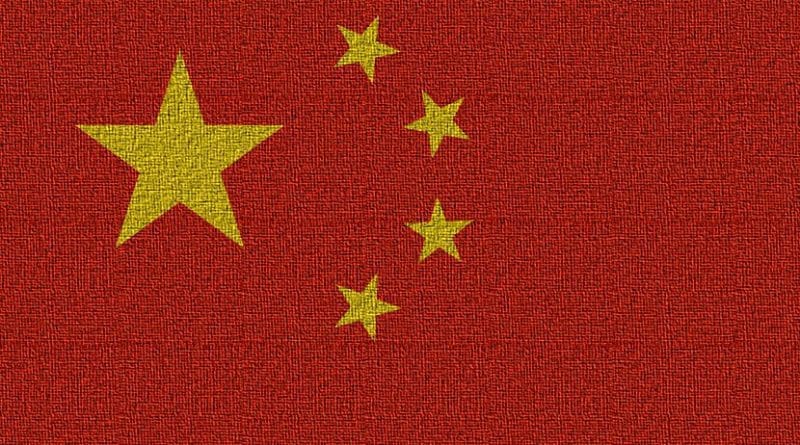China’s Rise Is But The Latest To Breed Fear In Anarchical World – OpEd
By Greg R. Lawson
There is a great deal of fear emerging in both the United States and East Asian nations such as Japan, the Philippines and Vietnam over a recently assertive China. Barring a fundamental transformation in the way international relations has always worked, the anarchical “state of nature” described by Thomas Hobbes and the theory of Realism indicate that conflict with China is virtually inevitable.
There are also those that dismiss these fears. They indicate China is unlikely to ever engage in overly dangerous behavior and that any current bellicosity will moderate in time as China becomes further enmeshed in the global economic order. These dismissals, however, miss a key point. The point is not what China will do in the immediate future. The real point is what will China COULD do in the future.
Fear is not based upon a certainty of what will occur, but upon the uncertainty of what might occur and make no mistake; fear and interest are perpetual drivers of human activity. They are the stuff of which history is comprised.
The fundamental problem of international relations is its anarchical nature. Whether one is a “classical realist” in the Morgenthau mould or a “structural realist” in the Waltz mould, anarchy is the core problem that frames how all states interact with each other. At the end of the day, there is no transnational, “global cop” or global Leviathan that can enforce international law. Indeed, force is the ultimate arbiter of international relations. Always has been and always will be.
Law and the “institutionalization” of law by embedding states into a legal framework is effective only so long as more interests are served than harmed and a real balance of power is achieved. When the balance shifts, institutions atrophy and become largely irrelevant from a practical standpoint. While they may manage to retain some amount of symbolic value, their inability to act in a concrete fashion fundamentally inhibits their usefulness. This is because law is an agreed upon code of conduct. When agreement falters and compromise is no longer possible for one side or both sides, what is left to enforce a given claim? As Mao himself bluntly stated, “political power grows out of the barrel of a gun.” This is truly a Hobbesian State of Nature.
As a given nation’s economic clout grows, interests inevitably expand and run into those interests of others once they become large enough.
China’s interests are now quite large. While it appears that it seeks to negotiate outcomes within the current global trading order for the most part, China’s aforementioned actions in the South China Sea showcase a more “Westphalian” as opposed to “Kantian” notion of international relations.
These actions are most likely taken for the same reason analogous actions have always been taken. Namely, because at a certain point, a once advantageous law will become a straitjacket. At that point, law takes the back seat and interest is pursued by whatever is the most efficacious means.
This process ALWAYS happens. It happened to Athens. It happened to Rome. It has happened every time a European power sought hegemony in Europe. It happened as the U.S. expanded its continental territory long before engaging in World Wars. It happened to a certain degree already with various previous dynasties in China.
This brings us full circle, for this same process is now happening (again) with China. The fears mentioned at the outset are thus not overhyped. It doesn’t matter what the present leadership of China wants, or even the next generation. China’s capabilities are what count. As various military capabilities are enhanced, subtle hedging becomes essential. Fear begins to begat further fear and the vicious cycle of the past reasserts its seemingly inexorable logic.
History teaches by inexact analogies, so the future could be different, perhaps, amazingly different from the past. Yet, a reasonable statesman must, by virtue of their position, assume that the vicissitudes of fortune will impact them in ways similar to their predecessors.
China’s rise is but merely the latest rise to instill fear due to the very nature of the world we live in.
Greg R. Lawson is a long time oberserver of politics and foreign policy. Mr. Lawson resides in Columbus, Ohio where he is a policy analyst with the Buckeye Institute. He alslo runs a personal blog, www.gregrlawson.com, focusing on foreign policy, politics, and philosophy.

